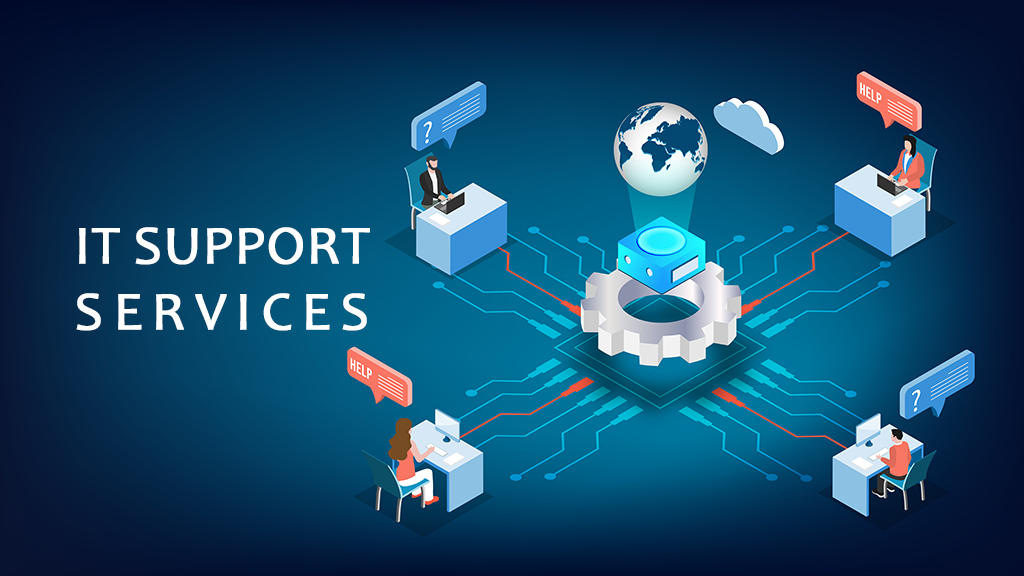
As you launch your startup, you’re likely juggling multiple priorities, from refining your product to building your team. But have you considered the tech infrastructure that will support your growing business? It’s easy to overlook, but establishing a solid IT foundation from the start can make all the difference in your startup’s success. From selecting the right tools and platforms to protecting your business from cyber threats, there are crucial decisions to be made. So, where do you begin, and how can you ensure you’re setting yourself up for scalability and growth?
Building a Solid Tech Foundation
When you’re building a startup from scratch, you need a solid tech foundation to support your vision IT Cloud Services.
This means investing time and effort into selecting the right tools, platforms, and infrastructure to power your business. You’ll need to decide on an operating system, choose productivity software, and set up a reliable internet connection.
Don’t overlook the importance of cybersecurity – you’ll need to protect your startup from cyber threats and data breaches.
You should also consider your data storage needs and decide on a cloud storage solution that fits your budget and requirements.
Additionally, think about how you’ll manage your team’s devices and ensure everyone has the right access to the tools they need.
By focusing on building a solid tech foundation, you’ll be able to scale your business more efficiently and effectively.
You’ll reduce the risk of downtime, data loss, and security breaches, allowing you to focus on what matters most – growing your startup.
Essential IT Systems for Startups
With your solid tech foundation in place, you can now focus on implementing the IT systems that’ll help you streamline operations, boost efficiency, and drive growth.
These essential systems will help you automate tasks, enhance collaboration, and make data-driven decisions.
First, you’ll need a reliable customer relationship management (CRM) system to manage your sales pipeline, track customer interactions, and analyze customer behavior.
Next, consider implementing a project management tool to streamline task assignments, track progress, and set deadlines.
An accounting system will also be crucial for managing finances, tracking expenses, and generating invoices.
Additionally, a communication platform like Slack or Microsoft Teams will help your team collaborate and communicate effectively.
Finally, a reporting and analytics tool will provide valuable insights into your business performance, helping you make informed decisions.
Protecting Your Business Data
Behind the scenes of your thriving startup, a multitude of sensitive data is being generated, from customer information to financial records.
It’s crucial you take proactive measures to safeguard this data from cyber threats, human error, and physical damage. Start by implementing robust password policies, ensuring all employees use unique, complex passwords and keep them confidential.
Next, encrypt sensitive data both in transit and at rest. This includes using HTTPS for online transactions and encrypting files stored on devices or in the cloud.
Regularly back up your data to prevent losses in the event of a disaster. Store backups in a secure location, such as an external hard drive or cloud storage service.
Limit access to sensitive data on a need-to-know basis, using permissions and access controls to restrict who can view or edit files.
Finally, educate your employees on data security best practices and establish an incident response plan to quickly respond to data breaches or losses.
Choosing the Right IT Partner
You’ve taken significant steps to protect your startup’s sensitive data from cyber threats and human error. Now, it’s essential to find the right IT partner to support your business.
This partner will be responsible for maintaining your IT infrastructure, troubleshooting issues, and providing strategic guidance to help your startup grow.
When choosing an IT partner, consider their expertise and experience working with startups. Look for a partner who understands the unique challenges and constraints of a startup environment.
Ask about their approach to IT support, their response times, and their pricing models. Ensure they can scale with your business and provide flexible, cost-effective solutions.
It’s also crucial to assess their communication style and cultural fit. You want an IT partner who can communicate technical information in a way that’s easy to understand and who shares your values and vision.
Scaling Your IT Infrastructure
As your startup grows, your IT infrastructure must keep pace to support increased traffic, data, and user demand.
You can’t afford to let your infrastructure hold you back, causing frustrating downtime, slow load times, or even security breaches.
To scale your IT infrastructure, you’ll need to assess your current setup and identify areas that require upgrades or changes.
You’ll want to consider your network architecture, server capacity, and data storage.
Can your current setup handle the increased load, or do you need to migrate to the cloud or invest in more robust hardware?
You should also evaluate your cybersecurity measures to ensure they’re robust enough to protect your growing user base and data.
It’s essential to have a clear understanding of your IT infrastructure’s limitations and plan for scalability from the outset.
By doing so, you’ll be able to adapt quickly to changes in your business and maintain the level of performance and security your users expect.
This will enable you to focus on driving growth and innovation, rather than putting out IT fires.
Conclusion
You’ve made it! By prioritizing IT support and infrastructure from the start, you’ve set your startup up for success. You’ve built a solid tech foundation, implemented essential systems, protected your business data, and chosen a reliable IT partner. Now, you’re ready to scale and grow. Remember, a strong IT foundation is key to driving innovation and staying ahead of the competition. Focus on your business, and let your IT infrastructure support you every step of the way.
